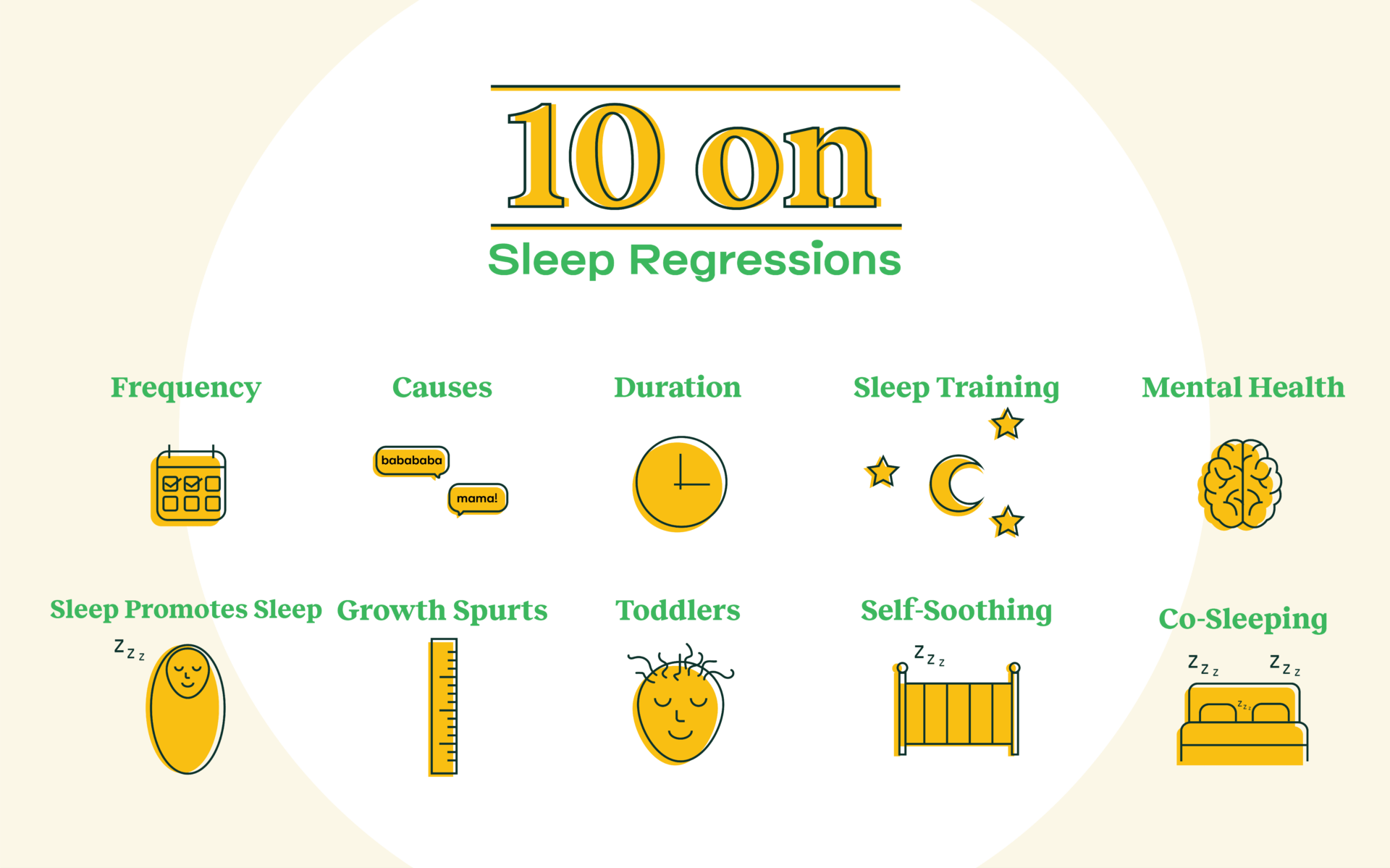We are proud to say that these posts are not sponsored. Our editorial team of Bobbie moms and writers personally select each featured product. If you buy something through our links, we may earn an affiliate commission, at no cost to you.
You gloated about your baby sleeping through the night, now all of a sudden they’re behaving like a newborn again. Their entire sleep routine has flipped on its head. Here are 10 things to know about sleep regressions:
1- Frequency of sleep regressions
Sleep regressions can happen at any time but they most commonly occur at 4 months, 8 months, and 18 months. The good news is that sleep regressions are just a phase and most babies don’t experience them all.
2- Causes of sleep regressions
New developments are the most common reason for sleep regressions. They typically coincide with your baby learning an important skill such as crawling, teething, or talking.
3- Duration of sleep regressions
Try not to freak out if your once amazing sleeper is suddenly waking up multiple times a night. Sleep regressions typically last between two to four weeks.
4- Sleep training baby
There are numerous methods and theories about the best ways to get your baby into a sustainable sleeping routine. If and when you sleep train is entirely up to you but make sure to choose a method you feel comfortable with and ensure your support system is prepared before you begin.
5- Mental health suffers during sleep regressions
Sleep is vital for the proper functioning of your brain and can increase the risk of postpartum depression. If your mental health is suffering due to your baby’s sleep regressions, speak to your doctor, and sleep train ASAP.
6- Sleep promotes sleep
Daytime sleep and nighttime sleep are intrinsically linked. Make sure your baby is getting good naps throughout the day to prevent overtiredness and help them fall into a deeper, more restful sleep overnight.
7- Growth spurts and sleep
Can cause your baby to suddenly wake more overnight but they aren’t the same thing as sleep regressions. Your baby will typically fall back to sleep easily after feeding during a growth spurt and they last about a week.
8- Toddlers and sleep regressions
Toddlers can also experience sleep regressions around age 2 and 3. Common causes are the arrival of a new sibling, potty training, nightmares or a fear of the dark.
9- Self-soothing helps baby learn to sleep
Try to put your baby to bed drowsy but awake. Give them a few minutes to settle themselves before responding if they wake unexpectedly from a nap or overnight. This will help them learn to fall asleep without your help.
10- Co-sleeping
If your baby usually sleeps in a crib— bringing them into your bed can seem like an easy fix during a sleep regression. It turns out that even occasional co-sleeping can actually result in you getting even less sleep.
Need more useful info from our 10:On series? Check out tips regarding baby gas, baby allergies, baby poop and more.

